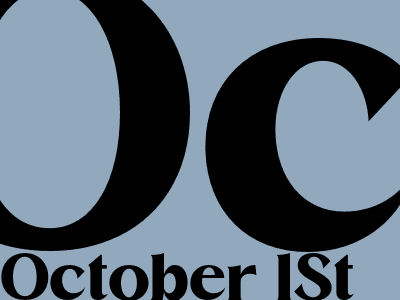
The Ultimate Guide to SEO: Strategies, Best Practices, and Tools
Introduction
In today's digital landscape, search engine optimization (SEO) is crucial for businesses and individuals to increase online visibility and reach their target audience. This comprehensive guide delves into the intricacies of SEO, providing you with a solid understanding of its strategies, best practices, and essential tools. With the knowledge gained from this extensive resource, you can implement effective SEO techniques to drive organic traffic to your website and achieve your marketing objectives.
Understanding SEO: Key Concepts and Principles
Search Engine Crawling and Indexing
Understanding how search engines work is fundamental to effective SEO. Search engines like Google employ web crawlers, also known as bots or spiders, to discover and index web pages. These crawlers navigate the internet, following links to discover new content. Once a page is discovered, it is added to the search engine's index, a massive database used to retrieve and rank relevant results when users perform searches.
Search Engine Ranking Factors
Numerous factors influence a website's ranking in search engine results pages (SERPs). These factors primarily fall into two categories: on-page and off-page factors. On-page factors are attributes of your website that you can directly control, such as content quality, keyword usage, and website structure. Off-page factors refer to external signals such as backlinks, social media mentions, and brand reputation. By optimizing both on-page and off-page factors, you improve your chances of achieving higher rankings in SERPs.
Types of SEO: On-Page, Off-Page, and Technical
SEO encompasses a variety of techniques and strategies that can be categorized into three main types: on-page SEO, off-page SEO, and technical SEO. On-page SEO focuses on optimizing your website's content and structure, including elements like keyword optimization, meta tags, and header tags. Off-page SEO involves building backlinks and engaging in other promotional activities to improve your website's authority and credibility. Technical SEO ensures that your website is crawlable, accessible, and mobile-friendly, meeting the technical requirements of search engines.
On-Page SEO: Optimizing Your Website's Content and Structure
Keyword Research and Optimization
Identifying and incorporating relevant keywords into your website's content is crucial for SEO. Conduct thorough keyword research to understand the search terms users are using to find information related to your business. By strategically placing these keywords in your page titles, headings, and body content, you increase the chances of your website appearing in relevant search results.
Content Creation: Value, Quality, and User Intent
High-quality, valuable content is the cornerstone of effective SEO. Create content that resonates with your target audience, providing in-depth information, addressing their pain points, and offering solutions. Ensure your content is well-written, grammatically correct, and engaging. Focus on meeting the user's search intent, providing the specific information they are seeking.
Website Structure and Navigation
A clear and well-organized website structure enhances user experience and search engine crawlability. Use descriptive headings and subheadings to structure your content logically, making it easy for users to find the information they need. Implement a user-friendly navigation menu to ensure visitors can effortlessly navigate your website.
Off-Page SEO: Building Backlinks and Promoting Your Website
Link Building: Quality Over Quantity
Backlinks, or incoming links from other websites to yours, are a vital element of off-page SEO. Building high-quality backlinks from reputable and relevant websites signals to search engines that your website is trustworthy and authoritative. Focus on acquiring natural, editorial links rather than engaging in link schemes or purchasing links.
Social Media and Brand Advocacy
Social media engagement and brand advocacy contribute to your website's overall authority and credibility. Actively engage with your audience on social media platforms, providing valuable content and interacting with users. Encourage your satisfied customers to leave positive reviews and testimonials, which can further enhance your reputation.
Local SEO for Local Businesses
Local SEO is crucial for businesses targeting customers in specific geographic locations. Optimize your Google My Business listing, ensure your website is mobile-friendly, and build local backlinks to improve your visibility in local search results.
Technical SEO: Ensuring Crawlability and Accessibility
Website Speed and Performance
Website speed is a critical ranking factor. A slow-loading website can negatively impact user experience and search engine rankings. Optimize your website's speed by minimizing image sizes, reducing HTTP requests, and using a content delivery network (CDN).
Mobile Optimization and Accessibility
With the increasing use of mobile devices, mobile optimization is paramount. Ensure your website is responsive and mobile-friendly, providing a seamless user experience across all devices. Additionally, focus on accessibility features to make your website inclusive and accessible to all users.
XML Sitemaps and Robots.txt File
XML sitemaps provide search engines with a clear understanding of your website's structure and content. Creating and submitting a sitemap to search engines helps them discover and index your pages efficiently. Additionally, use the robots.txt file to guide search engine crawlers, indicating which pages or sections of your website should or should not be crawled.
SEO Tools and Resources for Success
Numerous SEO tools and resources are available to streamline your SEO efforts and gain valuable insights. Utilize keyword research tools like Google Keyword Planner or SEMrush to identify effective keywords for your content. Employ website auditing tools like Screaming Frog or Siteliner to identify technical issues and improve website performance. Google Analytics and Google Search Console provide invaluable data and insights into your website's traffic, keyword rankings, and search engine visibility.
Conclusion
Effective SEO is a continuous process that requires ongoing optimization, adaptation, and monitoring. By understanding the fundamental principles of SEO, implementing best practices, and leveraging the right tools, you can drive organic traffic to your website, enhance your online presence, and achieve your digital marketing objectives. Stay updated on the latest SEO trends and algorithm changes to ensure your website remains visible and relevant in the competitive digital landscape.